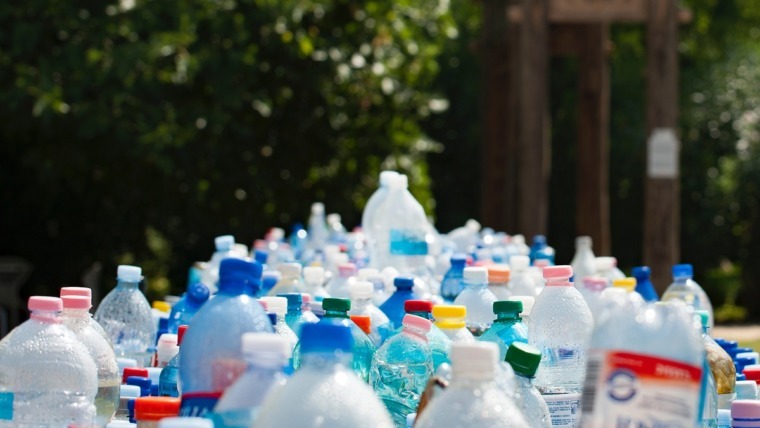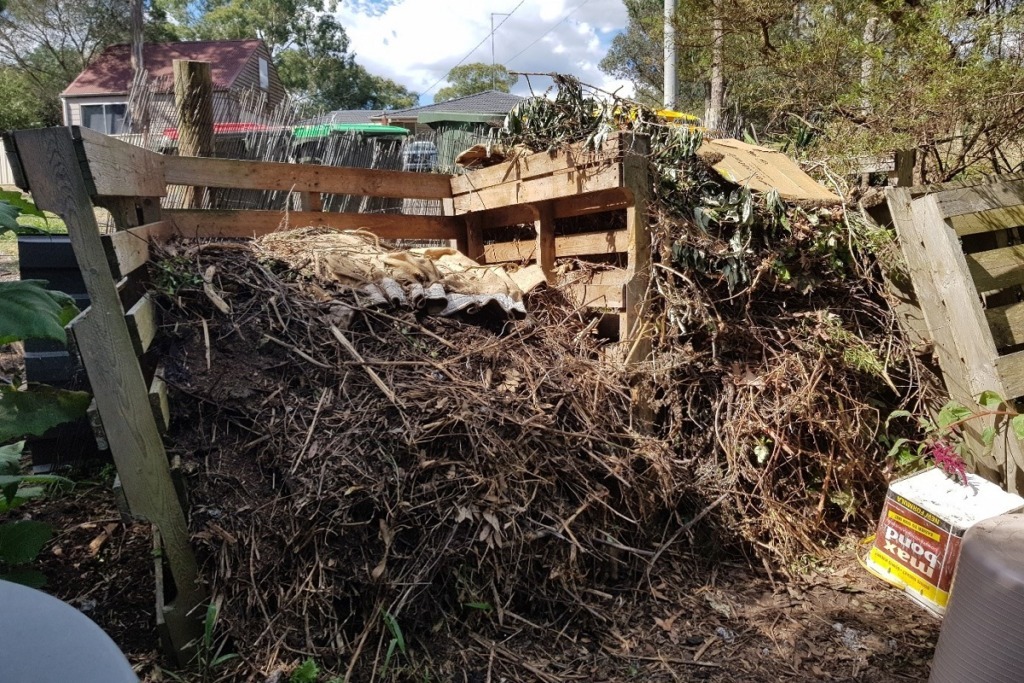
Simple Steps For Composting Success
Written by Lucinda Flynn
It is common knowledge that organic waste going into landfills is a big environmental problem. It releases methane - a very concentrated greenhouse gas - into the atmosphere, not to mention losing us a fantastic opportunity to recycle our organic wastes back into nutrients for our gardens and communities. But what specifically is ‘Organic Waste’, and which is the ‘best’ method of dealing with?
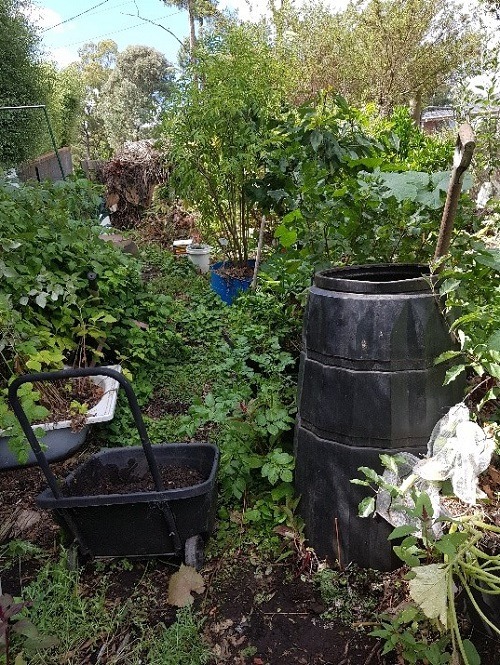
What Is ‘Organic Waste’?
Simply put, it is absolutely anything that is made from a material that was once living. The most obvious ones are kitchen scraps and garden waste; however, you can take this further and add all manner of materials – paper, cardboard, natural fibre clothing and materials, hair (after your haircut), cotton buds, and more.
What Is The Best Method Of Dealing With It?
As with so many choices we are faced with, it is not so much a question of there being a ‘best’ way of managing organic waste – the important thing is choosing a method or group of methods that work for you.
This means choosing the method(s) that match what you want to compost, how much outdoor space you have, your living situation, and your lifestyle.
Compost Bays
Let’s talk about compost bays first, since this is really the most suitable way to process larger kinds of wastes such as garden wastes. Compost bays are suitable for grass clippings, tree prunings, animal manure (horse, cow, pig, chicken), natural fibre clothing and materials, and most of the weeds and spent plants from out of your veggie gardens.
You can put kitchen scraps in a compost bay but be aware this might attract dogs who want to roll in it, rats and mice, and might be smelly if you are not turning it regularly.
Compost bays will only be suitable if you have the space for them and (unless you are regular turning and watering them) are usually a longer-term composting solution.
Chickens
Of course, this one also relies on you having the space to house them and a fox-free enclosure to keep them safe. If chickens are an option for you, they are an absolutely wonderful addition to any garden for both kitchen scraps and general garden scraps. Not only do they eat your scraps and turn them into eggs, but if you throw your garden waste in with them, they will turn it and gradually break it down into chook poo enriched compost that will help your veggies thrive.
Black Compost Bins With Lids
These are the most common kind of compost bin you will see in the garden. They are great for kitchen food scraps and are based on the decomposition of organic waste by worms and microorganisms.
For best results and to keep it from smelling, each time you put in your kitchen waste, cover it with some straw, sawdust or leaves. This dry, high-in-carbon material will balance the wet high-in-nitrogen kitchen scraps you have added. Ideally, use a compost corkscrew to aerate the compost for time to time – it is anaerobic decomposition (where there is no air present) that results in a bad smell, so aerating it should keep it smelling fine. You might find it becomes absolutely filled with worms – they are composting your waste for you!
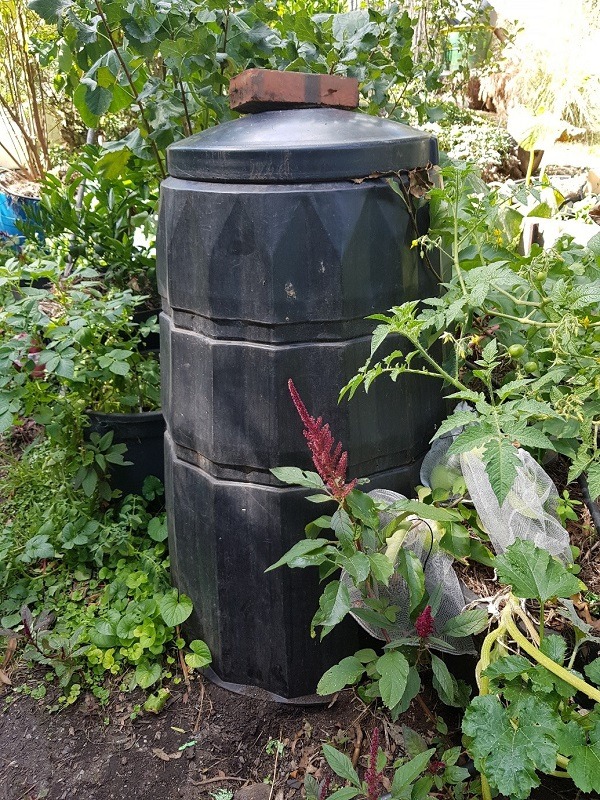
Bokashi Bins
Bokashi bins are suitable for people with a smallish amount of kitchen scraps, for example a 2-person home, and one of their benefits is that you can include meat, dairy, citrus and onion waste in a Bokashi bin too. The bin can be stored in the kitchen cupboard or a nearby space such as a laundry and should only have to be emptied into the garden after about a month.
Bokashi bins use a process of fermentation to break down organic waste, as opposed to decomposition (which is what happens in a regular compost bin). To use, collect your daily scraps in a container like an ice-cream container, then once a day, tip them into the Bokashi bin, press down and sprinkle grain starter over it, then replace the lid.
The Bokashi powder you sprinkle on a Bokashi is not a chemical as such, rather it is living microorganisms stored in an inactive form in a grain base. You can compare it to freeze dried bakers yeast, which remains inactive until you mix it with warm water. Once the grain base is sprinkled into the bokashi bin and gets wet, the organisms come to life and start fermenting your food scraps. As long as you are using enough powder, your Bokashi should never smell, which is why you can keep it indoors.
As the food ferments, liquid can be drained from the bin and diluted for use as a nutritious garden fertiliser. Once your bin is full, you can either tip the contents into your compost bin for further breakdown or dig a hole in the garden and bury the contents in the hole. If you don’t have a garden, you could give the contents to a friend or neighbour who will love the addition of such rich organic matter into their own garden.
Worm Farms
A small sized worm farm is a great option for smallish amounts of kitchen scraps, not including meat, dairy, citrus or onion. You’ll need to be able to position your worm farm in a sheltered position so it does not overheat, and feed at a regular rate (if you over feed for the number of worms, the waste will start to rot).
You can make large scale worm forms too for large amounts of kitchen wastes – and the resulting worm castings are a fabulous addition to any garden!
Weed Tea Buckets
All gardeners know that sometimes you have to pull up weeds that have the potential to spread even further if you add them to your compost - for example, blackberry, oxalis, Kikuyu grass - so you need another solution. Rather than take these weeds off-site, weed tea buckets allow you to keep all their nutrients on hand while stopping them from spreading.
Take a large bucket with a lid, fill it with weeds and water, and leave it with the lid on for at least 10 weeks. You'll come back to find a black sludge of composted weeds, along with the nutritious water they are sitting in that you can dilute and use as garden fertiliser on your garden.
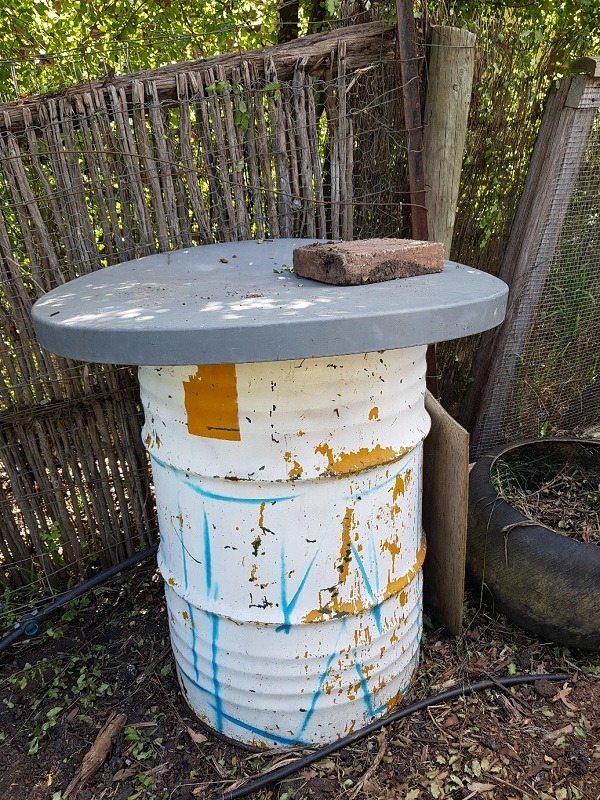
Council Green Waste Bins
Depending on where you live, most councils have a green waste bin that you can put garden scraps into, and this is an absolutely great idea if you don’t have the outdoor space, energy or time to compost your own garden waste. This waste is collected and commercially composted for other people to use – a win-win.
Some councils go further and allow this bin to also be used for kitchen organic wastes, which is also ideal for those without the capacity to compost them at home.
Give Away Your Organic Waste
If you have either kitchen scraps and/or garden scraps that you would really like to see composted but just don’t have the space or capacity yourself, you can sign up to a site such as ShareWaste.com, where you can register as either a ‘giver’ or as a ‘receiver’ of scraps.
Or, get in touch with your local community garden and see if they have a compost bin or pile for you to add to. There are always people out there who would love as much organic waste as they can get their hands on.
So - treat your organic waste as the valuable resource that it is, and rather than allow it to be wasted in landfills, allowing it to replenish your garden and community.
Simple Steps For Composting Success Simple Steps For Composting Success Simple Steps For Composting Success Simple Steps For Composting Success Simple Steps For Composting Success


